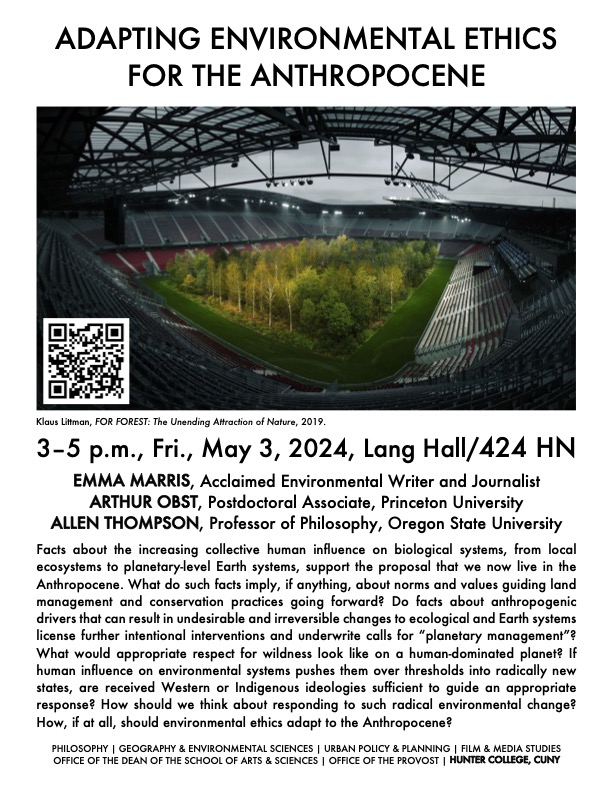We are excited to announce a public talk featuring Elie During as part of French philosopher Gaston Bachelard’s 60th death anniversary. On the face of it, The Dialectic of Duration, Gaston Bachelard’s 1936 essay, is a pungent—if often unfair—criticism of the Bergsonian doctrine of time and creative evolution. The constructive side of this Anti-Bergson has received less attention: it implies a genuine poetics of time based on the intuition of the sporadic and oscillatory nature of becoming. Bachelard’s rhythmic theme is consistent with the idea of “surrationalism” introduced that same year as a formal counterpart to the surrealist experiments carried out on the fringes of conscious experience. Inspired by the explosive potential of scientific revolutions already celebrated in Le Nouvel Esprit Scientifique, the surrationalist project can be interpreted as that of a poetics of reason. André Breton believed it would “act simultaneously as a stimulant and restraining influence” (“Crisis of the Object”). Insights from the scientific investigation of time as well as poetic and musical experience will help us see how this double action is in keeping with the eruptive dynamics of imagination and reason, as much as with Bachelard’s ideal of “self-surveillance”.
Elie During is an Associate Professor of Philosophy at the University of Paris Ouest. His research focuses on the philosophical implications of relativity theory. His publications include an introduction to Poincaré’s philosophy of science (La Science et l’Hypothèse, 2001), an essay on the nature of time (The Future does not Exist, 2014), two critical editions of Bergson, a coedited volume on contemporary metaphysics of realism (Choses en soi, 2018, English translation forthcoming from Edinburgh University Press), and most recently a critical edition of Bachelard’s Dialectique de la durée (2021).
Organized by
Julie Beauté, Aix-Marseille Université, ADES (France)
Alexander Campolo, Durham University (UK)
Jeanne Etelain, New York University (USA)
Sam Kellogg, New York University (USA)
Alexander Miller, Ghent University (Belgium)
Pierre Schwarzer, New York University (USA)
Meg Wiessner, New York University (USA)
With responses from Mark Siderits (Illinois State University)
ABSTRACT: Buddhist philosophers often draw a distinction between two different kinds of truth: conventional truth (saṃvṭi-satya) and ultimate truth (paramārtha-satya). Abhidharma Buddhists philosophers typically understand this distinction in terms of an ontological distinction between two different kinds of entities: ultimately real entities (paramārtha-sat) and conventionally real entities (saṃvṛti-sat). Similar to contemporary philosophical discussions about ordinary objects, Buddhist philosophers debate the ontological status of conventional entities and the semantics of discourse concerning them. Mark Siderits (2015, 2021, 2022) has influentially argued for an eliminitivist position he calls “Buddhist reductionism” that interprets the Abhidharma position as one that denies conventional entities exist but that retains discourse involving apparent reference to them. However, in a recent article Kris McDaniel (2019), a prominent defender of ontological pluralism, challenges that view by proposing that the Abhidharma Buddhist distinction between conventional truth and ultimate truth be “defined up” from a more basic distinction between two different ways an entity can exist: conventionally or ultimately. In this paper I argue that Saṃghabhadra’s account of conventional reality and truth does lends itself well to McDaniel’s proposal but I will also argue that the account of conventional and ultimate truth that results differs in important ways from the models he offers. I will end by offering a modification of McDaniel’s account of conventional truth that is derived from Saṃghabhadra’s pluralist ontology. That view will, unlike the views suggested by both Siderits and McDaniel, allow for there to be ultimate truths about what is conventionally true.
Dinner will be kindly offered by the Columbia University Seminars.
RSVP is required for dinner. Please email Lucilla with eating requirements at lm3335@columbia.edu.
Facts about the increasing collective human influence on biological systems, from local ecosystems to planetary-level Earth systems, support the proposal that we now live in the Anthropocene. What do such facts imply, if anything, about norms and values guiding land management and conservation practices going forward? Do facts about anthropogenic drivers that can result in undesirable and irreversible changes to ecological and Earth systems license further intentional interventions and underwrite calls for “planetary management”? What would appropriate respect for wildness look like on a human-dominated planet? If human influence on environmental systems pushes them over thresholds into radically new states, are received Western or Indigenous ideologies sufficient to guide an appropriate response? How should we think about responding to such radical environmental change? How, if at all, should environmental ethics adapt to the Anthropocene?

The Saul Kripke Center is pleased to announce that James Walsh (Assistant Professor, Philosophy, NYU) will deliver a talk on Friday, May 10th, 2024, from 4:15 to 6:15 pm at the CUNY Graduate Center (Room 9207). The talk is free and open to all.
Title: Modal definability and Kripke’s theory of truth
Abstract: In Outline of a Theory of Truth, Kripke introduces some of the central concepts of the logical study of truth and paradox. He informally defines some of these–such as groundedness and paradoxicality–using modal locutions. We introduce a modal language for regimenting Kripke’s informal definitions and characterize the modally definable sets. Though groundedness and paradoxicality are expressible in the modal language, we prove that intrinsicality–which Kripke emphasizes but does not define modally–is not.